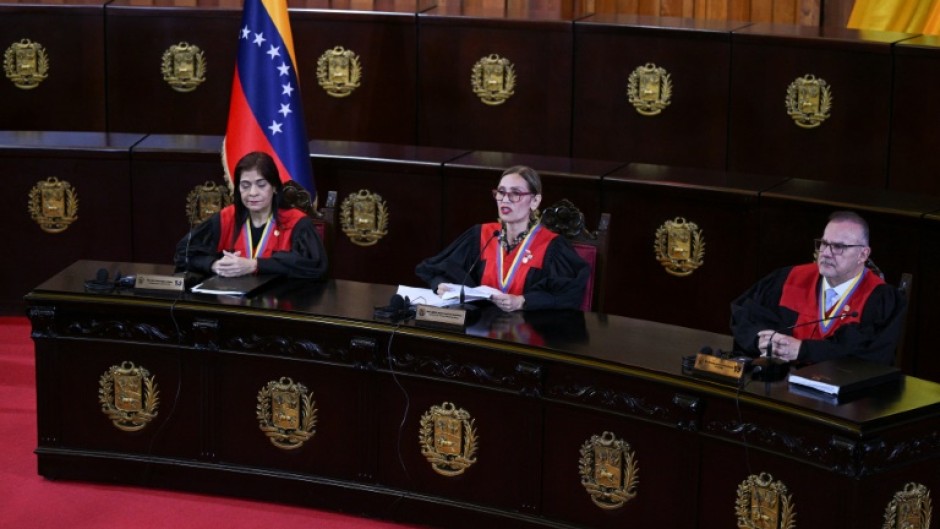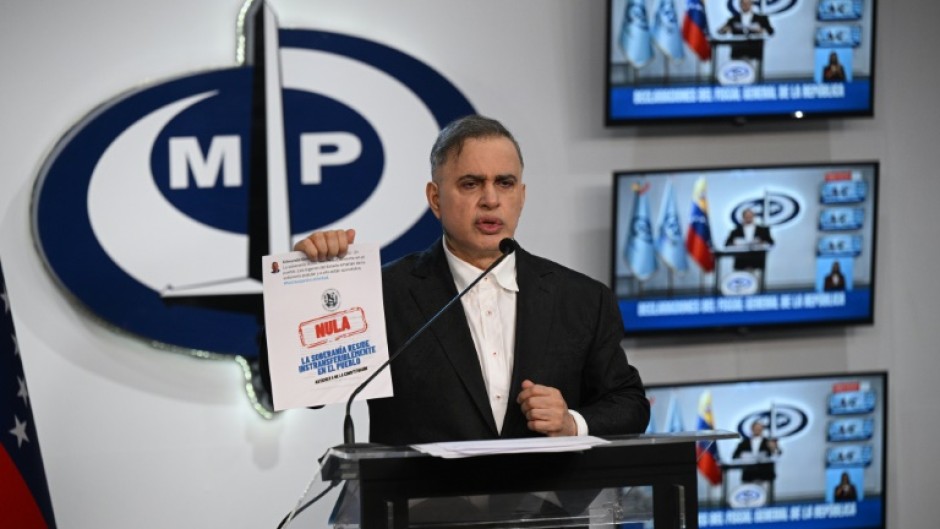The United States along with countries in Europe and Latin America on Friday rejected the certification by Venezuela's Supreme Court of strongman Nicolas Maduro's widely questioned presidential reelection.
Washington, which has sanctions in place against Maduro's regime, said through State Department spokesman Vedant Patel that the ruling "lacks all credibility," while Spain and Mexico continued to insist on a detailed breakdown of voting results.
Venezuela's top court, widely regarded as loyal to Maduro, on Thursday certified his disputed reelection to a third, six-year term -- a ruling he welcomed as "historic."
The CNE electoral council, also seen as a Maduro ally, had declared him the winner of the July 28 election, with 52 percent of votes cast. It never provided a detailed breakdown of results.
The opposition says polling station-level results show that its candidate Edmundo Gonzalez Urrutia, a 74-year-old retired diplomat, defeated Maduro by a wide margin.
It published these results online, prompting an investigation by Attorney General Tarek William Saab, seen as a Maduro ally, who said the opposition had "usurped" the powers of the CNE to release election results.
On Friday, Saab said he would summon Gonzalez Urrutia "in the coming hours" to explain his "disobedience" of state institutions.
Patel said Friday there was "overwhelming evidence" Gonzalez Urrutia had won the vote, and warned that "continued attempts to fraudulently claim victory for Maduro will only exacerbate the ongoing crisis."
Protests in the hours following the vote left 25 people dead, nearly 200 injured and more than 2,400 under arrest.
It was time, said Patel, for "discussions on a respectful, peaceful transition."
Maduro has called for the arrest of Gonzalez Urrutia, who has not been seen in public since leading a July 30 opposition march.
- 'Lack of independence' -
The United States also signed a joint statement with 10 Latin American countries that decried a "lack of independence and impartiality" on the part of the high court and the CNE.
"Only an impartial and independent audit of votes... will ensure respect for the sovereign popular will and democracy in Venezuela," said the document, which was also signed by Argentina, Costa Rica, Chile, Ecuador, Guatemala, Panama, Paraguay, Peru, the Dominican Republic and Uruguay.
Venezuela rejected the statement as "unacceptable" interference.
Spain and Mexico insisted that unless Venezuela publishes detailed voting results, Maduro's victory claim cannot be recognized.
Mexico, Brazil and Colombia have been promoting negotiations to find a way out of the Venezuelan crisis.
For his part, EU top diplomat Josep Borrell insisted Friday that "we have not seen any evidence" of a Maduro victory.

"Until we see a result that is verifiable, we will not recognize it," he said.
The CNE has said it could not provide a polling station-level breakdown as its systems had been targeted in a "cyber terrorist attack" -- a claim backed by the Supreme Court.
An observer mission from the US-based Carter Center said there was no evidence of a cyber attack.
The opposition, for its part, says it has access to the results from 80 percent of paper ballots cast and that they show that Gonzalez Urrutia won handily.
Gonzalez Urrutia on X urged the international community to remain "firm in defending our democracy and continuing to demand transparency from state bodies."
The governments of Cuba and Nicaragua, also under US sanctions, have congratulated Maduro.
US Vice President Kamala Harris, in a letter to Gonzalez Urrutia and opposition leader Maria Corina Machado, praised Venezuelans' courage to "stand up for their rights and demand a democratic future."
The letter was dated August 16 but only publicly shared by Harris's national security advisor on Friday.
Harris has taken on an increasingly public role alongside President Joe Biden since replacing him atop the Democratic ticket for the November US election.
In the letter, Harris said the United States would "continue to encourage the parties in Venezuela to begin discussions on a respectful, peaceful handover of power."
By Esteban Rojas


